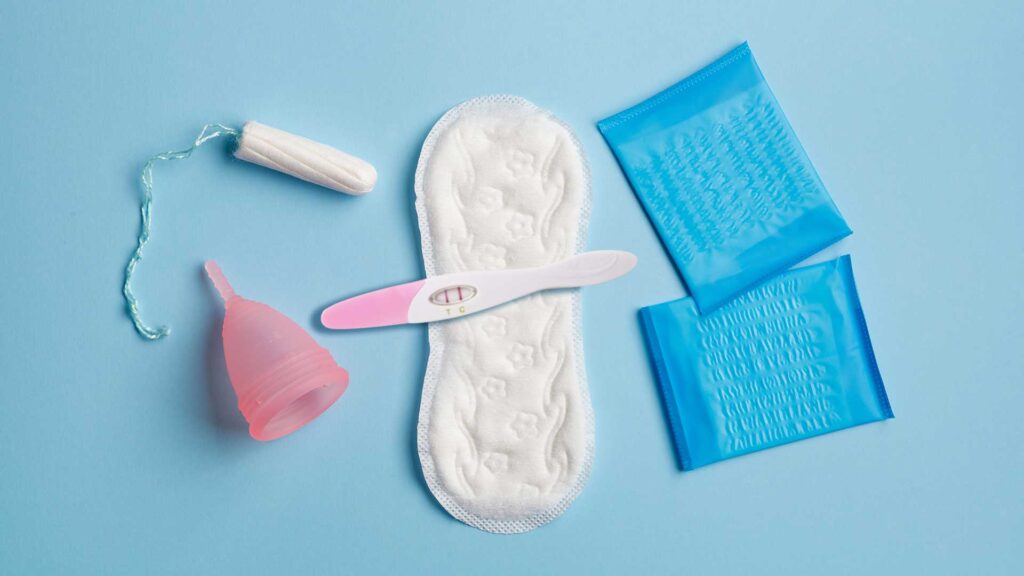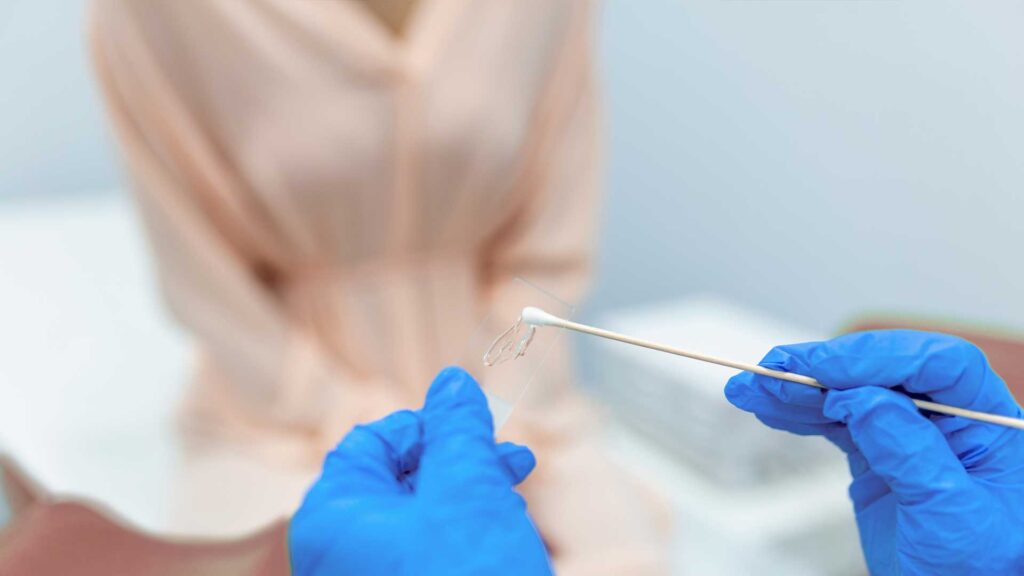Debunking 8 popular myths about female+ health
- READING TIME 7 MIN
- PUBLISHED November 02, 2023
- AUTHOR Donna
Key takeaways
- Many half-truths and old wives’ tales about female+ health and sexuality still persist today, doing a great disservice to women+ and their well-being.
- Can hormonal contraceptives cause infertility? Can you get pregnant by having period sex? Is vaginal douching safe? What happens to your vagina after delivery? We debunk some of the most enduring myths.
- What misinformation about female+ bodies have you been told so far in your life? Let us know on Instagram or Facebook.
Debunking 8 popular myths about female+ health

Myth #1: Birth control pills can make you infertile
One of the more persistent myths around female+ health argues that using hormonal birth control decreases the ability to have a baby. This is wrong: hormonal contraceptives work by suppressing your menstrual cycle, but they don’t permanently change it once you stop taking them. A study of more than 3700 women+, for example, found no link between oral contraceptives and fertility. They have, however, observed only a short delay – up to a couple of months – in natural conception after getting off the pill. 1
Other forms of hormonal contraceptives shouldn’t have an impact on your fertility, either. 2 The only partial exception is an injection, popularly known as the Depo-Provera shot. It may take up to 12 months after your last shot before cycles return back to normal. 3
This being said, birth control pills may mask reproductive problems that cause infertility. Once you stop taking contraceptives, these problems can reappear. In addition to this, it’s a fact of life that fertility declines with age, especially after you hit 35. 4
For more on fertility and contraceptives, check our article.

Myth #2: Douching is a safe way to maintain intimate hygiene
Using fluids to clean the insides of your vagina is known as douching. People who practice it typically use water mixed with vinegar, baking soda or soap, and spray or squirt it upward into the vagina at high pressure. In addition to making your vagina “cleaner”, many believe douching will also help them get rid of unpleasant smells or prevent infection.
The reality is, however, that the practice could do more harm than good by disrupting the vaginal flora and natural acidity, potentially leading to yeast infection or bacterial vaginosis. In fact, women+ who douche once a week are five times more likely to develop bacterial vaginosis than women+ who don’t douche. 5 Other risks of douching include pelvic inflammatory disease, vaginal irritation or even pregnancy problems. 6
The best thing you can do for your vagina is to leave it to perform its self-cleaning routine. The bodily mucus will keep the place clean, moist and better protected from infection.

Myth #3: Women+ can’t get pregnant during their period
In a nutshell: if you ovulate, you can potentially conceive anytime in your cycle. The long answer is a bit more complicated, though.
You are fertile five days prior to ovulation which is how long a sperm cell can survive in the fallopian tube, plus the one day when the egg is released. In a “textbook” menstrual cycle lasting 28 days, the ovulation occurs 14 days after the period starts. But cycles are unique and rarely consistent, which means the fertility window may open earlier or later than day 14. 7
In an irregular cycle, on the other hand, it’s much trickier to track ovulation and plan pregnancy sex (or avoid it) accordingly. In a very short cycle and considering the sperm can survive in menstrual blood, you could technically get pregnant from having unprotected period sex.
One study that estimated the date of conception for almost six thousand pregnancies found that two percent of participants were within their fertility window on day four, which would almost certainly overlap with their period. 8 Still, period sex or having sex immediately before and after a period will unlikely lead to pregnancy. Most participants in the same study conceived around day 12 of their cycle. 9

Myth #4: Labia is only normal if it’s symmetrical
Some think that only a certain vulva look is “normal”, perpetuating a false idea that having uneven or longer vaginal lips is somehow less attractive. 10 But unless it involves pain or discomfort, the size of the labia (or clitoris) is not something you should worry about.
Vulvas are just like their owners and come in all shapes, sizes and colours. They can be long, short, wrinkled or smooth, dark or light. In fact, most women+ have inner lips, also known as labia minora, that are longer than the outer labia majora. 11
The one thing labia have in common is that they all deserve love and attention for the important work they do. In addition to protecting the clitoris, vagina and urethra, they also make sex pleasurable and painless by lubricating parts around the vaginal opening. 12

Myth #5: Pap smear tests are painful
Pap smear tests are used to screen for cervical cancer. If detected early, these tests can prevent the development of cancer.
What do pap smears feel like? A gynaecologist will use a device called a speculum to gently expand the vagina. This shouldn’t hurt, but it may be slightly unpleasant, especially if the vaginal muscles are tight. The gynaecologist will then take a small brush to pick up a sample of mucus cells from the cervix. This may feel like a pinch. The sample is sent to a lab, where technicians check for any abnormal cells. You may notice a bit of light bleeding after the procedure but nothing close to menstrual bleeding and it should stop within a day.

Myth #6: First-time penetrative sex will be painful
Not necessarily. Spending more time on foreplay, changing sex positions and taking it slow can make all the difference (also true in all future love-making).
But even with the right moves, some discomfort or pain may still happen. The reason is anatomical. First-time penetration may stretch and break a membrane around the entrance of the vagina, called the hymen. If the tissue is thicker and less stretchy, sex may hurt a bit or cause some bleeding. You can prepare by gently stretching the tissue with your fingers.

Myth #7: Vaginal discharge doesn’t mean anything good
A white or clear vaginal discharge is not a cause for concern and it serves important cleaning, lubricating and protective purposes of your vagina. The amount and texture of mucus depend on the cycle or whether you’re pregnant. Near the end of pregnancy, for example, it may turn into jelly-like pink mucus. 14
Vaginal discharge typically doesn’t have a strong smell and should be relatively predictable. On the other hand, any noticeable change in smell, color and texture, possibly accompanied by itching or pain, could be a sign of an infection like thrush or bacterial vaginosis. 15

Myth #8 Vagina will become unrecognisable after childbirth
The vagina is truly remarkable. It can expand more than three times its normal size during vaginal delivery. 16 The degree of stretching depends on the baby’s size, how long you push, possible past deliveries and genetics.
Within a few weeks after delivery, your vagina will likely contract and regain much of its muscle tone. It may get a bit looser, although not necessarily something others will notice. Each progressive birth will likely stretch your vagina a tiny bit more and change its shape. Practising pelvic floor exercises like Kegels can help strengthen your pelvic floor post-baby. 17
REFERENCES
- https://academic.oup.com/humrep/article/28/5/1398/940795?login=false
- https://www.contraceptionjournal.org/article/S0010-7824(11)00161-2/fulltext
- https://www.devonsexualhealth.nhs.uk/does-contraception-affect-fertility/
- https://www.acog.org/womens-health/faqs/having-a-baby-after-age-35-how-aging-affects-fertility-and-pregnancy
- https://pubmed.ncbi.nlm.nih.gov/17197596/
- https://www.ncbi.nlm.nih.gov/pmc/articles/PMC2567125/
- https://www.nature.com/articles/s41746-019-0152-7
- https://pubmed.ncbi.nlm.nih.gov/23340057/
- https://pubmed.ncbi.nlm.nih.gov/23340057/
- https://pubmed.ncbi.nlm.nih.gov/28369012/
- https://labialibrary.org.au/your-labia/are-my-labia-normal/
- https://www.osmosis.org/answers/labia-minora
- https://my.clevelandclinic.org/health/symptoms/4719-vaginal-discharge
- https://www.nhs.uk/pregnancy/related-conditions/common-symptoms/vaginal-discharge/
- https://www.nidirect.gov.uk/conditions/vaginal-discharge
- https://doi.org/10.1146/annurev-bioeng-061008-124823
- https://www.mayoclinic.org/healthy-lifestyle/womens-health/in-depth/kegel-exercises/art-20045283
RELATED ARTICLES
Explore more
Feed your curiosity with more content. Dive deeper and explore our selected articles, curated just for you.


